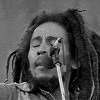“ A false belief is one which, in suitable circumstances, will cause the person entertaining it to experience surprise, while a true belief will not have this effect. ”
Bertrand Russell, A History of Western Philosophy (1945). copy citation
| Author | Bertrand Russell |
|---|---|
| Source | A History of Western Philosophy |
| Topic | belief surprise |
| Date | 1945 |
| Language | English |
| Reference | |
| Note | |
| Weblink | http://www.ntslibrary.com/PDF%20Books/History%20of%20Western%20Philosoph... |
Context
“This failure of adjustment constituted error, and one may say that you were entertaining a false belief.
The test of error in the above illustration is surprise. I think this is true generally of beliefs that can be tested. A false belief is one which, in suitable circumstances, will cause the person entertaining it to experience surprise, while a true belief will not have this effect. But although surprise is a good criterion when it is applicable, it does not give the meaning of the words “true” and “false,” and is not always applicable. Suppose you are walking in a thunderstorm, and you say to yourself,”
source


